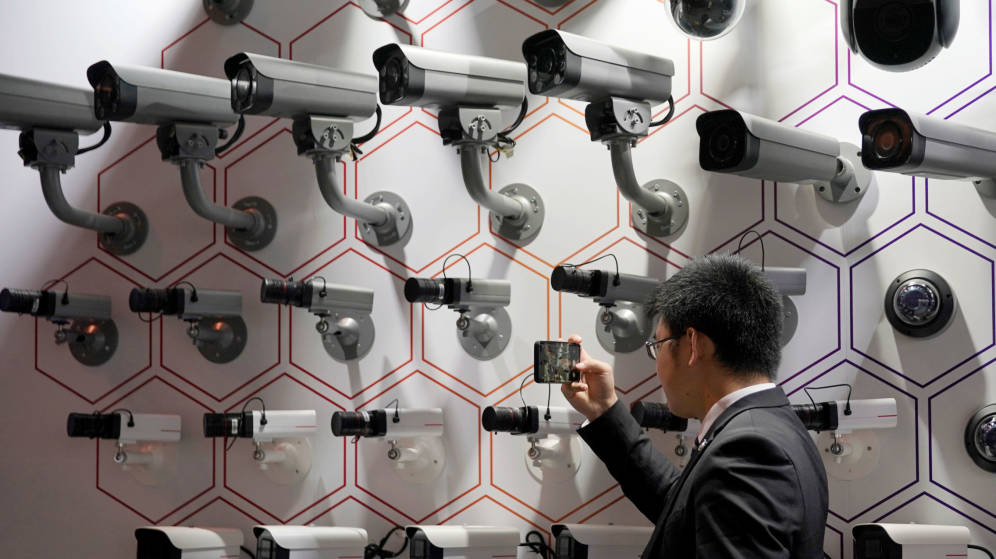
Facebook was born in 2003 as ‘Face match’, an application to flirt. Who would imagine that the platform would be used to influence elections worldwide? Google was created with the mission of “organizing the information of the world and making it accessible and useful”, but its director, Eric Schmidt, has recognized the complex evolution of his search engine: “One of the things I did not understand in the beginning was that these systems can manipulate public opinion in ways that do not match what we think of democracy. ” This duality in the use of technology is also observed in the ways in which world leaders govern their territories.
China has a surveillance network of more than two hundred million cameras, and the Government has promoted technological advances whose applications have been questioned by human rights activists. It has established a social credit system that evaluates the behavior of each citizen according to the parameters of the Government, and some cities have giant screens that publish lists of delinquents.
These types of surveillance measures to control the population do not remain in Chinese territory, but the Government of Chinese President Xi Jinping is exporting them as a model of success.
The success of Jinping China has seduced many leaders worldwide with a model that academic Shoshana Zuboff has described as an “incubator for terror capitalism.” An investigation by Freedom House revealed that China has sold technology to 18 countries and 36 have participated in training seminars on topics such as “guiding public opinion.” US Senator Marco Rubio has accused the country of being “in the business of exporting its authoritarianism.”
Venezuela has joined the list. The telecommunications company ZTE has helped the government of Nicolás Maduro create the “card of the motherland”. It is not a simple identity document. The Maduro government has invested about 70 million dollars to offer subsidies through it, but its membership is not free. Citizens provide a large amount of data such as family information, income, political membership and activity in the social networks used by the Government.
In Ecuador there are more than 4,000 cameras that nurture police monitoring centers. A New York Times article revealed that Ecuadorian police spend their days reviewing the recordings within 16 centers that employ more than three thousand people throughout the country. The technology is Chinese and was installed in 2011. The American newspaper revealed that the recordings have also ended in the dreaded National Intelligence Agency that under the mandate of former President Rafael Correa accumulated a long history of monitoring, intimidation and attack on political opponents.
Another buyer is Zimbabwe. The African state acquired from the arte start up ’Cloud Walk a series of artifacts to build a facial recognition system and strengthen its security. Although the Cloud Walk company is a private company, numerous media outlets in the region confirm that it has received millions of grants from the Jinping Executive.
Chinese surveillance and security company Yitu Technology sold portable cameras with facial recognition technology to Malaysia to strengthen security in public spaces, according to local authorities. The company’s technology can identify a person in its database of 1.8 billion people in three seconds with 95% accuracy.
And Chinese rulers have access to the different databases generated by their companies both in their territory and abroad.
Another of China’s most controversial customers is North Korea. Huawei and the state-owned company Panda International Information Technology built a telephone network in the country, according to a Washington Post investigation. This investment has been criticized for going against the sanctions that have been imposed on the peninsula to force its denuclearization.
These models have not originated from day to morning. In 2010 a delegation of countries, including Syria and Russia, went to the United Nations with a request: to establish sovereign borders in the digital world. The request did not prosper, but Russia has led attempts to achieve it. The Kremlin has tried to design an independent Internet project, and the Russian Government has carried out temporary disconnections to see if in case of foreign aggression Russia could be unplugged from the global network.
These practices contradict the optimism with which many saw technology. Foreign Affairs analysts detected that these uses of technological tools represent a setback in the liberalization of authoritarian countries because it allows them to make changes in people’s quality of life and maintain their control at the same time. Scholars point to that matching

